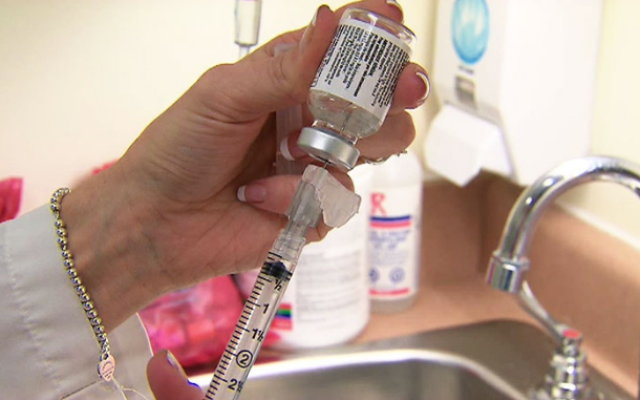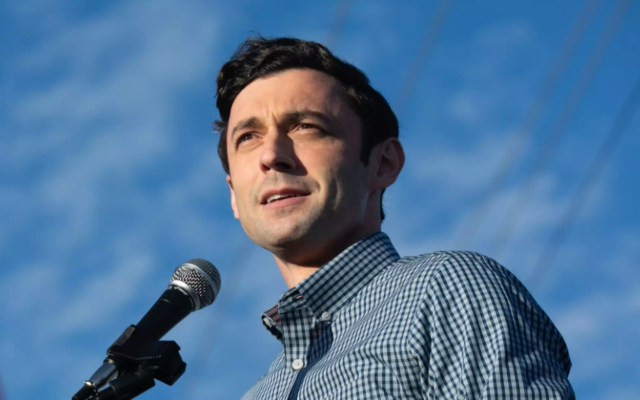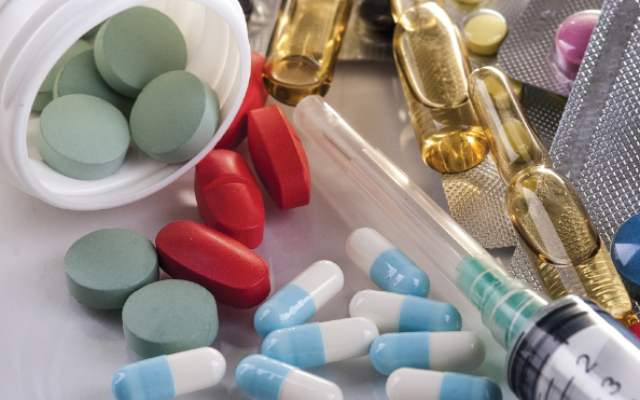Drug Shortages Affecting Critical Chemotherapy
Supplies of two widely used drugs are forcing doctors to make some difficult decisions.
America is facing a widespread shortage of several cancer drugs including a pair of drugs that play an important role in chemotherapy treatments. According to the Food and Drug Administration, there are at least 14 cancer drugs that are in short supply.
The shortage of cancer medications is part of an even bigger problem of drug shortages that has been highlighted by Georgia Sen. Jon Ossoff. The senator’s office earlier this year released the results of hearings held by the Senate Committee on Homeland Security and Governmental Affairs that show drug shortages were at record levels.
Ossoff is a member of the influential committee that reported 295 drugs in short supply at the end of last year, an increase of 30 percent over the previous 12-month period.
This year, the University of Utah Health Drug Information Service, which tracks drug shortages, reports that so far this year drug shortages are at their highest level since 2014.

The chairs of the committee on which Ossoff serves, Democratic Sen. Gary Peters and Republican Sen. Joni Ernst, introduced legislation on June 15 that would require the Department of Homeland Security, the Department of Defense, and the Department of Health and Human Services to take a closer look at the process of supplying pharmaceuticals in this country. The legislation also is aimed at developing government plans to help expand the supply chain for important drug treatments.
Shortages of critical drugs has been particularly alarming to oncologists, those physicians who specialize in the treatment of cancer. Among the drugs that have been difficult to find this year is carboplatin, an important primary treatment in cancers of the breast, head and neck, lungs, ovaries, and many leukemias and lymphomas. To preserve their dwindling supplies, some cancer treatment providers have reportedly had to ration doses of the drug by 10 percent or more.

Although cutting doses of the drug in this way doesn’t significantly impact its effectiveness, it points up the concern that cancer treatment specialists have expressed about the shortages.
According to a survey released this month by the National Comprehensive Cancer Network, an alliance of 33 important treatment centers, 93 percent of those surveyed reported shortages of carboplatin. The shortage has been caused, in part, by the difficulty at one manufacturing facility, Intas Pharmaceuticals, in India, over safety concerns that the FDA uncovered during the manufacturing process.
The cancer network also reported that 70 percent of the treatment centers they surveyed had difficulty finding a second chemotherapy treatment, cisplatin. To ease that shortage, the Food and Drug administration recently allowed the temporary importation of an unapproved chemotherapy drug from China.
“This is an unacceptable situation,” according to Dr. Robert Carlson, CEO of the National Comprehensive Cancer Network. “We are hearing from oncologists and pharmacists across the country who have to scramble to find appropriate alternatives for treating their patients with cancer right now.”
This is an unacceptable situation. We are hearing from oncologists and pharmacists across the country who have to scramble to find appropriate alternatives for treating their patients with cancer right now.
For physicians like Dr. Kristin Rice, the shortage has forced some difficult choices.
“Every week at my practice, my colleagues and I are now forced to compile a list of how much cisplatin and carboplatin we have compared to how much we need. Recently, we had more than a dozen patients we can’t treat in the coming weeks with our current supply.”
Among the shortages that could impact cancer patients is doxorubicin, which is important in the treatment of breast cancer, leukemia, and lymphoma; 5-Flourouracil, a treatment for many gastrointestinal cancers; and generic nab-Paclitaxel, a commonly used therapy in pancreatic and metastatic breast cancer.
Specialists like Dr. Julie Gralow, chief medical officer and executive vice president of the American Society of Clinical Oncology said the shortage is unprecedented.
“What’s different about this shortage is, I think, it’s just the broad applicability of these drugs, how important they are, you know, globally, in the U.S., in the treatment of many diseases,” she said. “I don’t know of a time that’s worse than this.”
The shortages are part of a troubling pattern that has affected both prescription drug and over-the-counter pharmaceuticals. During last winter’s flu and cold season, parents found children’s acetaminophen, like Tylenol, and ibuprofen, like Motrin and Advil, in short supply while others found it difficult to fill prescriptions for children’s antibiotics, such as liquid amoxicillin.
The short supply of Adderall, which is an important drug for children and adults who have ADHD, Attention Deficit Hyperactive Disorder, has made daily life difficult for many users. Patients with diabetes have also had to scramble for supplies of drugs like Ozempic and Wegovy, which have suddenly become popular for off-label use for weight loss.
- Health and Wellness
- Community
- Bob Bahr
- Chemotherapy
- Food and Drug Administration
- Georgia Sen. Jon Ossoff
- Senate Committee on Homeland Security and Governmental Affairs
- University of Utah Health Drug Information Service
- Sen. Gary Peters
- Sen. Joni Ernst
- Department of Homeland Security
- the Department of Defense
- Department of Health and Human Services
- carboplatin
- National Comprehensive Cancer Network
- Intas Pharmaceuticals
- Dr. Robert Carlson
- cancer drugs
- Dr. Kristin Rice
- cisplatin
- 5-Flourouracil
- doxorubicin
- nab-Paclitaxel
- Dr. Julie Gralow
- American Society of Clinical Oncology
- Adderall
- Attention Deficit Hyperactive Disorder
- Ozempic
- Wegovy




comments